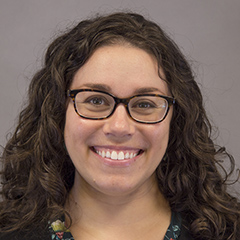Project Overview
To explore approaches to gathering family input, create practitioner-friendly resources to support programs in gathering and using family input, and engage TANF and child support programs in formative learning cycles to test and refine the resources.
Seeking feedback from families on how programs can better operate, improve services, and serve future families can create more effective social programs that meet the needs of the people they are intended to support. However, TANF and child support program and policy environments can present some barriers to engaging families in program improvement.
MEF Associates
U.S. Department of Health and Human Services, Administration for Children and Families, Office of Planning, Research, and Evaluation

In partnership with the Office of Planning, Research, and Evaluation (OPRE), the Office of Family Assistance, and the Office of Child Support Enforcement, Mathematica’s work includes:
- Understanding the current landscape of family input in human services program improvement. Mathematica researched how human services programs gather and use input from the families they serve to inform improvements to their programs. Through discussions with state, local, and Tribal program leaders, as well as scans of academic and nonacademic literature, Mathematica identified practices and examples from across the human services field that can inspire TANF, child support, and other human services program leaders and staff to engage families in program improvement.
- Developing a comprehensive toolkit of resources to support TANF and child support program leaders in engaging families in program improvement. Mathematica partnered with an Expert Workgroup consisting of members with a range of identities and experiences, including TANF and child support program staff and people with lived experience in these programs to conceptualize and develop the toolkit. Mathematica will continue to work with the Expert Workgroup throughout the course of the project.
- Formatively testing the toolkit with eight TANF and child support programs and refining the toolkit based on their feedback. Starting in 2023, Mathematica will provide coaching and technical assistance to program staff as they use the toolkit to plan and execute a program improvement initiative that includes family input. Based on the programs’ experiences using the toolkit and feedback gathered through coaching, interviews, and surveys, Mathematica will refine the toolkit.
Evidence & Insights From This Project

Using Family Input to Improve TANF and Child Support Programs
This video series is designed to encourage and make it easier for TANF and related program staff and leaders to actively seek to hear the opinions and perspectives of families they have served, are currently serving, or could serve in the future.
Learn MoreRelated Staff
Efficiency Meets Impact.
That's Progress Together.
To solve their most pressing challenges, organizations turn to Mathematica for deeply integrated expertise. We bring together subject matter and policy experts, data scientists, methodologists, and technologists who work across topics and sectors to help our partners design, improve, and scale evidence-based solutions.
Work With Us

